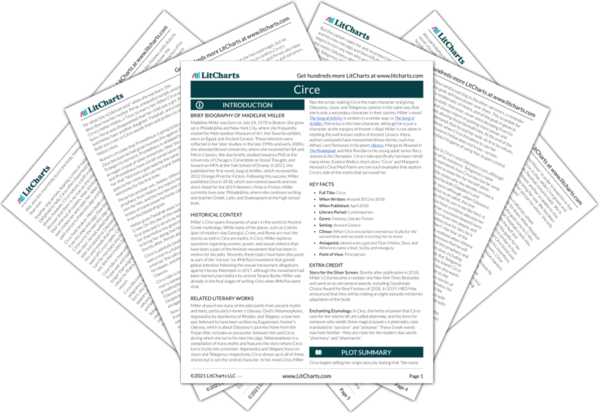LitCharts assigns a color and icon to each theme in Circe, which you can use to track the themes throughout the work.
Power, Fear, and Self-Preservation
Women, Power, and Misogyny
Change, Initiative, and the Self
Mortality, Fragility, and Fulfillment
